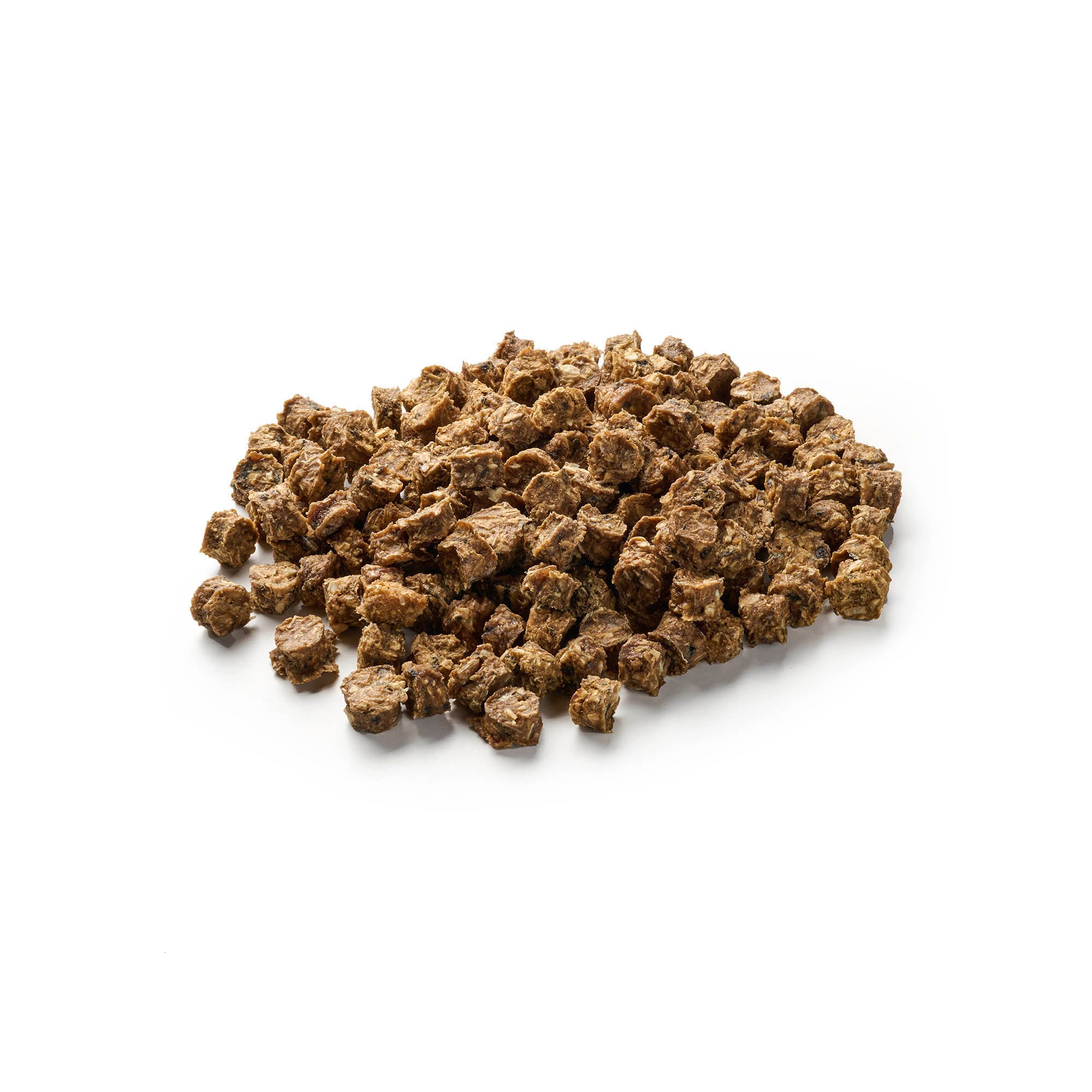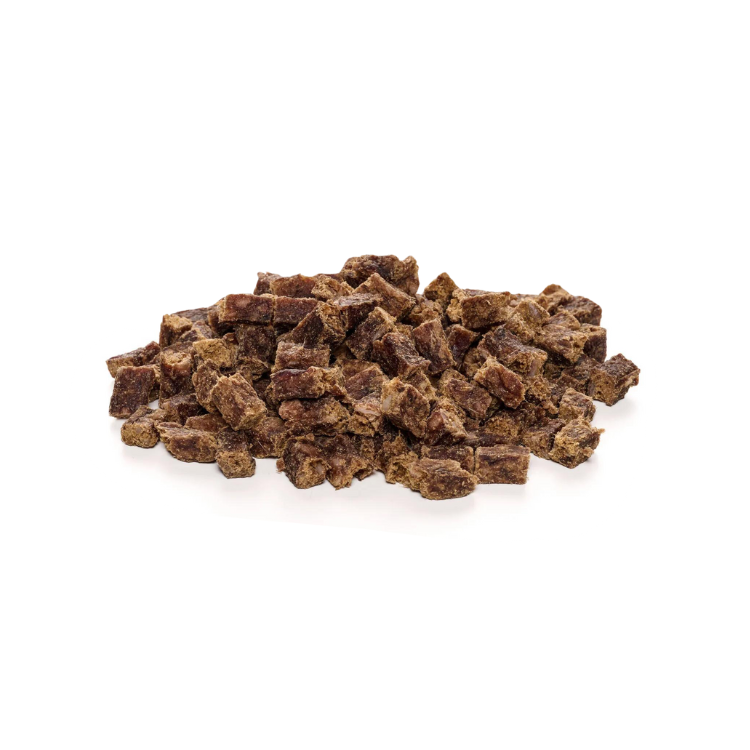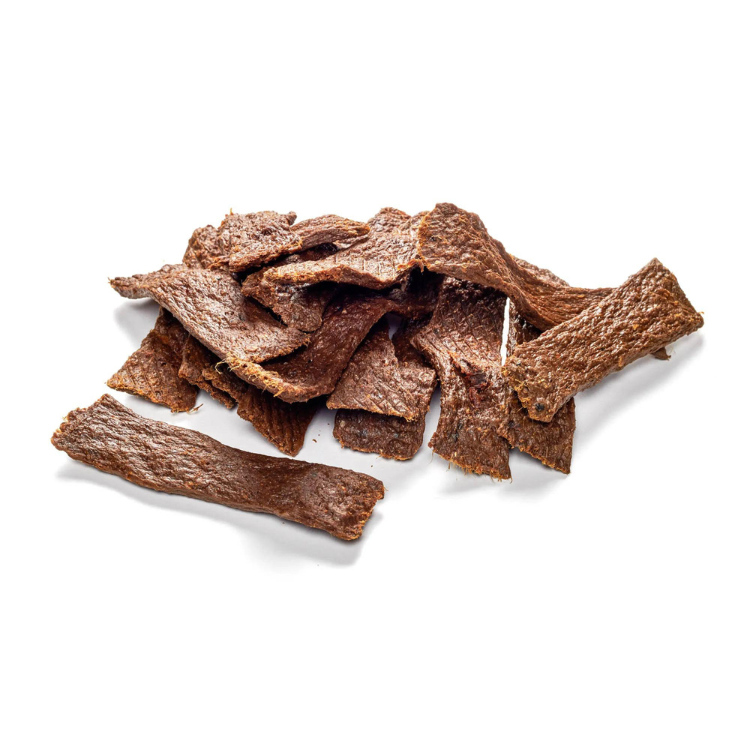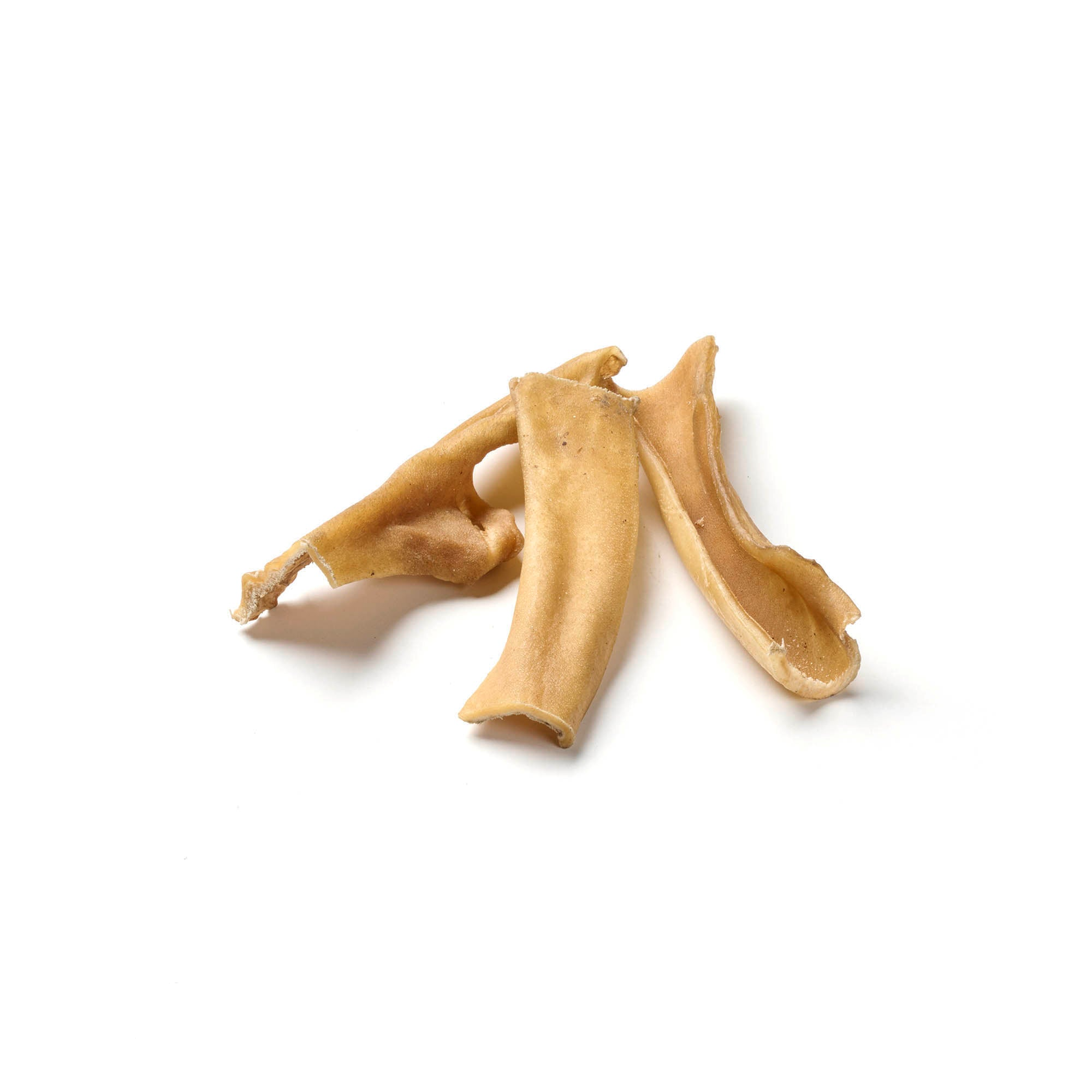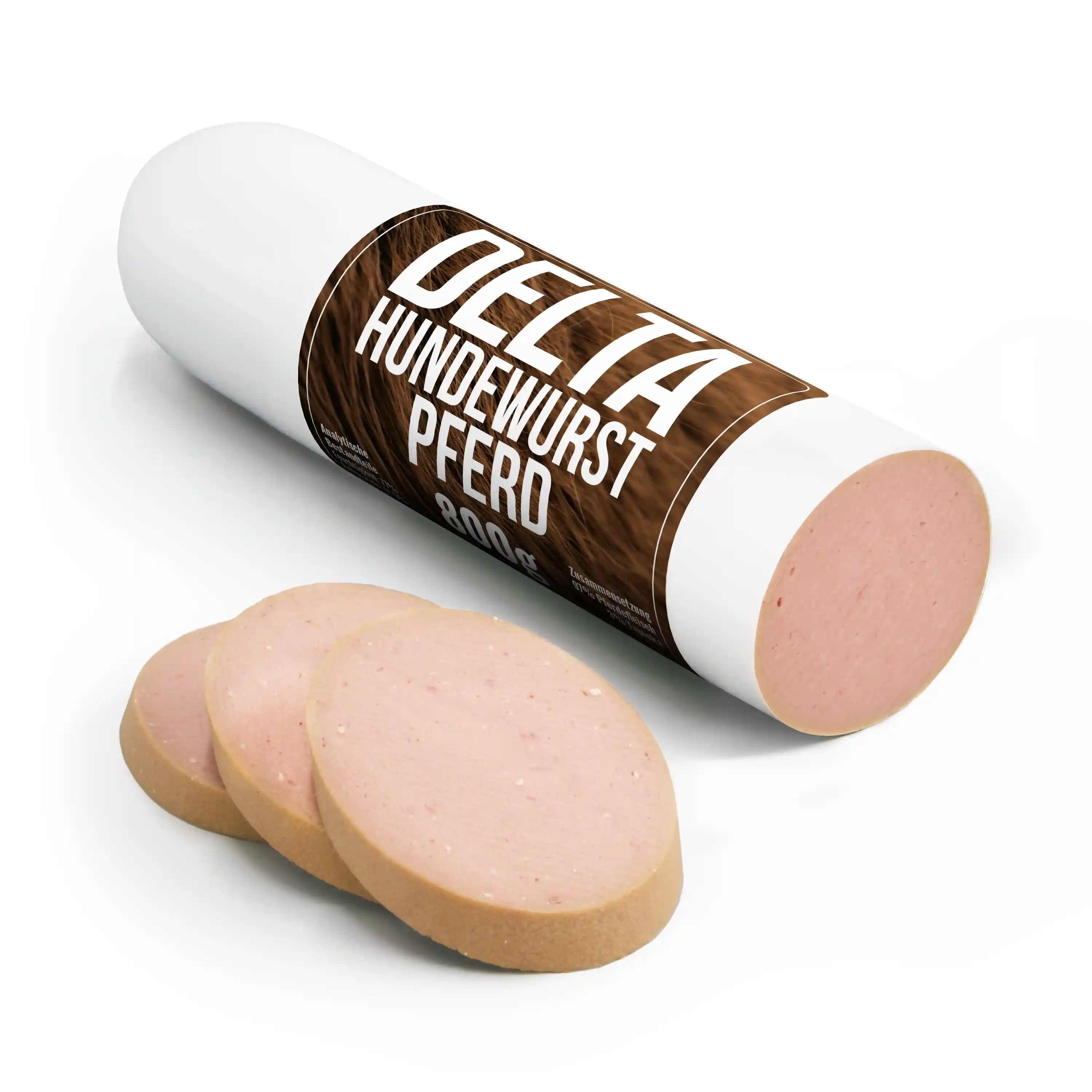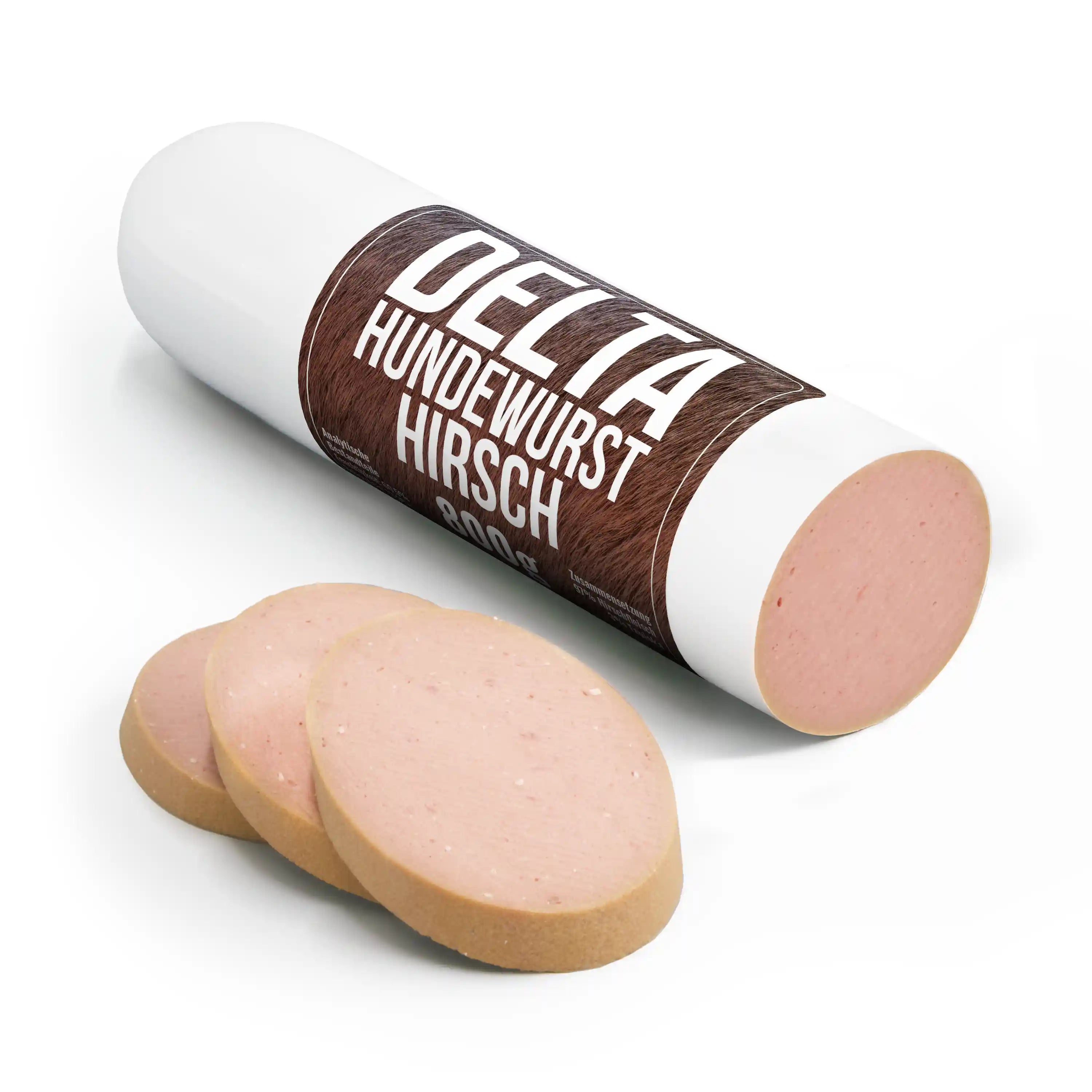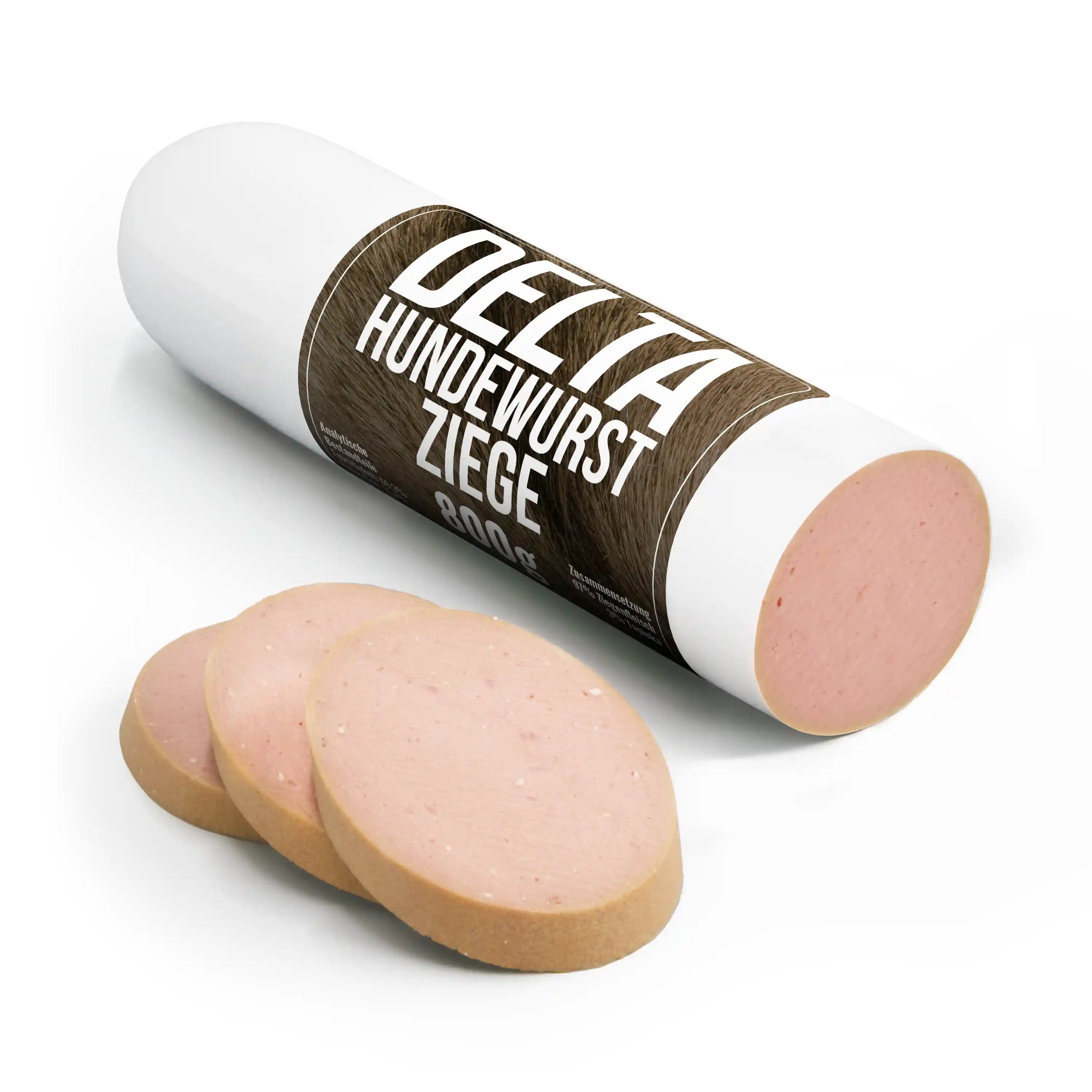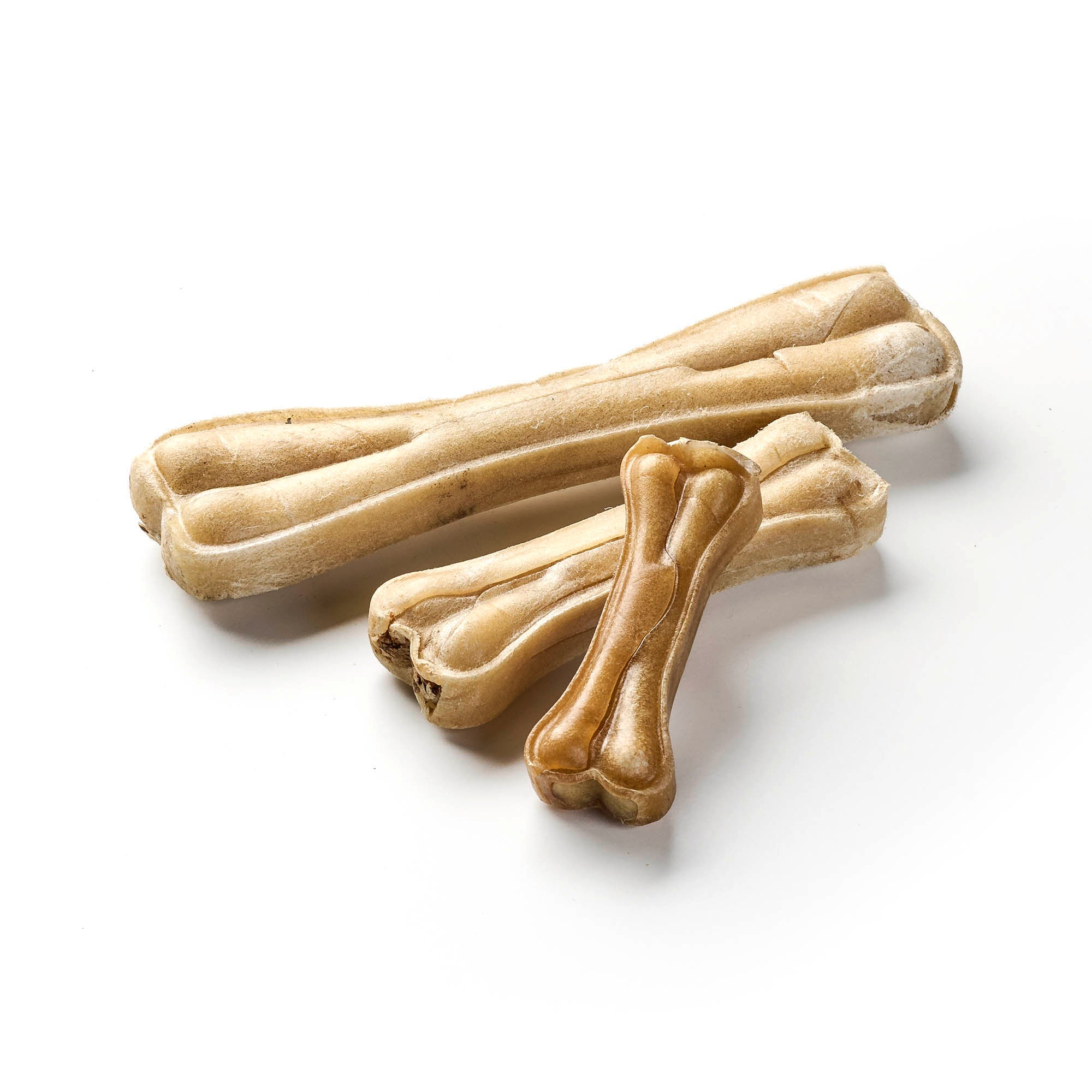
Hypoallergenic dog food - a guide
Share
Allergies are annoying. Not just for us humans, but also for dogs. Since they do not decide for themselves what goes on the plate, dog owners must treat their four-legged friends' diet responsibly and ensure that the dog does not suffer because it is allergic to the food of choice.
To counteract food allergies in dogs, there is hypoallergenic dog food. Here we explain what makes hypoallergenic dog food and what you should consider when buying it.
Contents: Hypoallergenic dog food
- Hypoallergenic dog food for allergies?
- When should dog food be hypoallergenic?
- What exactly is hypoallergenic dog food?
- Should you buy hypoallergenic dog food?
- Conclusion
Discover delicious dog snacks directly from our range!
Hypoallergenic dog food is dog food designed for dogs that suffer from allergies. Suffering from allergies can be a difficult situation for both you and your dog. That's why it's good to know that there are realistic chances of improvement. As with us humans, it is unfortunately often the case with our four-legged friends that they suffer from intolerances and allergies.
It is estimated that around a quarter of all dogs struggle with allergies.
Anyone who suffers from an allergy or has developed an intolerance to certain foods knows how unpleasant such symptoms can be. The same goes for your dog.
That's why it's important that you watch your dog closely so that you can recognize any symptoms early.
Hypoallergenic dog food for allergies?
You should monitor your dog closely to identify any possible symptoms as early as possible. If you suspect a dog has an allergy, it is important to act quickly. If your dog is acting strangely, you should pay special attention to any signs of an allergic reaction.
Unfortunately, many dog owners do not recognize an allergic reaction in their dog quickly enough, which only causes the dog to suffer unnecessarily and for longer. We have therefore created a short list for you that you can use to find out if your dog has allergies.
If your dog shows any of the following symptoms, it is likely that it is poisoning, allergy or intolerance:
- Vomit
- Diarrhea
- Flatulence
- Skin problems (itching, redness, sores)
- Scratching and licking
- Cough
- Infections
- swelling
- Ear infections
The most common dog allergies include environmental and food allergies. Especially when it comes to dog food, more and more dogs are being diagnosed with intolerance or allergies.
The triggers for allergies are often certain carbohydrates or proteins that are found, for example, in certain types of meat . If this is the case, you can consider switching to vegetarian dog food.
However, there are a variety of potential allergy triggers, and dogs, just like humans, can also develop gluten intolerance or similar, which leads to allergic reactions.
When should dog food be hypoallergenic?
If your four-legged friend is diagnosed with an allergy that is triggered by food, the part responsible for the allergy should then be removed from the menu. Hypoallergenic dog food has only a few components, i.e. few ingredients, making it easier to understand whether it is due to the type of meat, for example. It can therefore be a good and simple method to avoid allergies in dogs.
What exactly is hypoallergenic dog food?
What particularly distinguishes hypoallergenic food is its simple properties compared to known allergens. This means that with hypoallergenic dog food, great care is taken to ensure that the food is free of the most well-known allergens.
The food is often based on just one type of meat, which reduces the complexity of the composition and enables a much better overview of the ingredients. The problem with many types of dog food is that they are made from different types of meat and vegetables.
For dogs who fortunately do not suffer from allergies, it is absolutely no problem to give food that consists of many ingredients.
However, if your dog suffers from an allergy or intolerance, it becomes much more difficult to identify the supposed trigger and remove it from his diet.
Spoil your four-legged friend with our delicate chew items!
Should you buy hypoallergenic dog food?
Since allergies are often triggered by the proteins found in food, a process of elimination can help when discussing the problematic protein for your dog. There are also diets that hydrolyze hypoallergenic dog food. This means nothing more than an attempt to render the problematic proteins harmless.
When changing your diet, it is important to first discuss how long your dog has been feeling unwell. The longer he has been showing symptoms, the more important it is that you change his diet.
As mentioned, when it comes to an allergy it is usually difficult to find the trigger immediately. But fortunately, these days there are many products that are most likely safe for your four-legged friend. Most hypoallergenic dog foods are completely free of common allergens such as milk, soy and grains as well as problematic meats such as pork and beef.
In this way, there is a very good chance that you can provide relief for your dog by changing his diet.
Conclusion
If your dog develops allergies, it is not a pleasant experience. But with the right diet, with a bit of luck, the problem can be quickly eliminated! Allergy tests for dogs are now also available and, in consultation with a veterinarian, allergies in dogs are usually not a big problem.
Make your dog happy with our delicious snacks!

